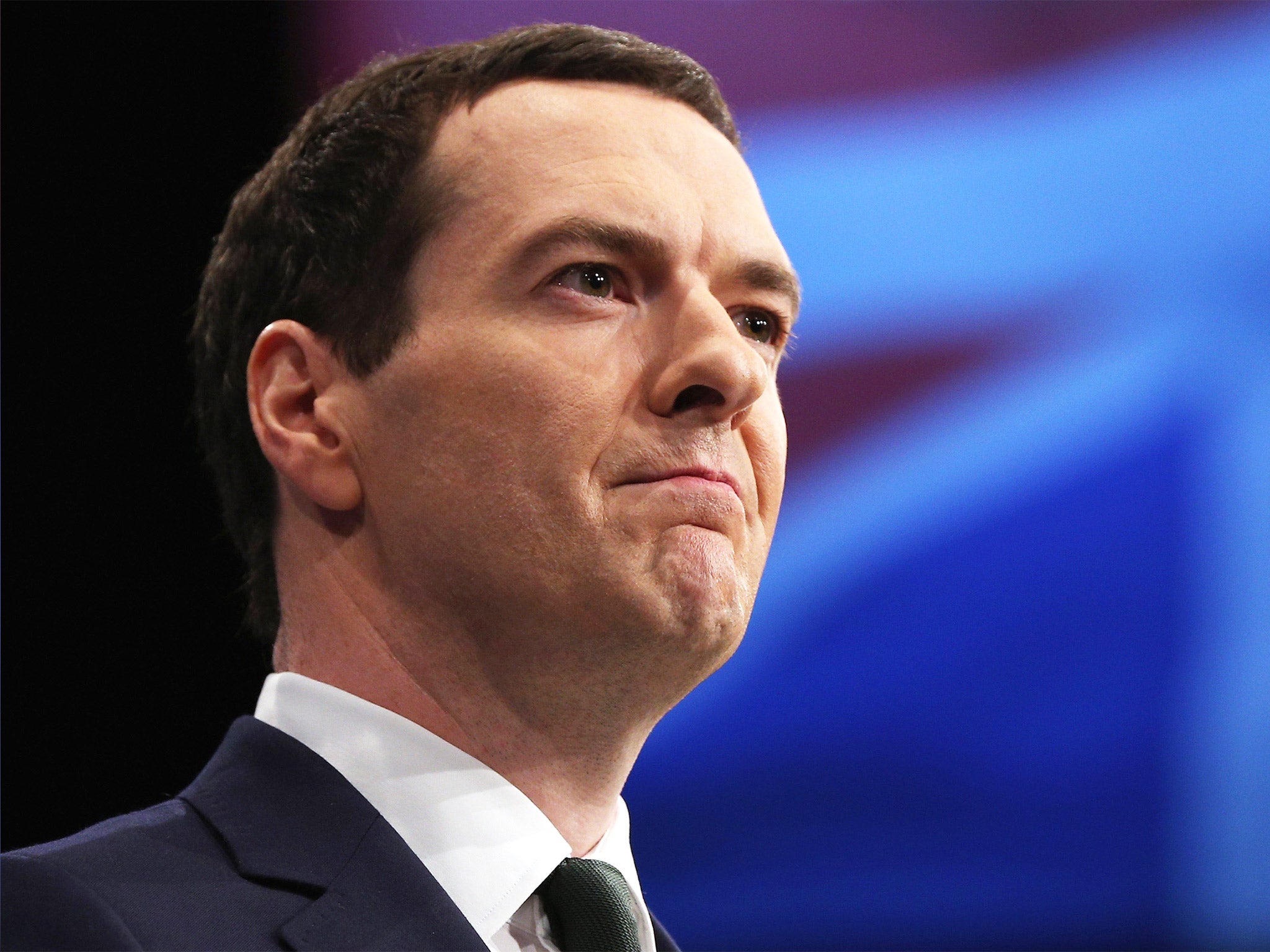George Osborne urged to speed up tax allowance plans to soften impact of benefit cuts
Cabinet ministers and Tory backbenchers have warned the Government will face a backlash over tax credit cuts

Ministers are urging George Osborne to speed up his plans to raise the personal tax allowance in order to soften the impact of his £4.4bn cuts to tax credits.
Some cabinet ministers have joined Tory backbenchers in warning that the Government will face a backlash when 3.2 million people are told just before Christmas that their state-funded wage top-ups will be reduced next April.
The Chancellor has already promised to raise the amount of tax-free earnings, currently £10,600 a year, to £10,800 next April and £11,000 a year later. Ministers pressing for a rethink argue a faster timetable would help many of those hit by the tax credit cuts. An announcement in the March Budget would come on the eve of the cuts. “We could take the sting out of it without doing a U-turn,” one minister said.
Another option would be to raise the £6.70 an hour minimum wage, which will increase to £7.20 an hour next April for those aged 25 and over, when it is rebranded as a national living wage. But that would increase employers’ costs and would not help those on tax credits who earn more than the legal minimum.
With some Tory MPs warning of a repeat of Margaret Thatcher’s hated poll tax, pressure for a climbdown mounted at the party conference. David Willetts, the former universities minister who will soon become a Tory peer, told a Resolution Foundation fringe meeting that the impact of the tax credit cuts should be “softened” to address two problems – cash losses for some families and a marginal tax rate of 80 per cent when their credits are withdrawn as their earnings rise. Keeping only 20p of every extra £1 earned would deter some people from working longer hours, he said.
At the same meeting, Matthew Hancock, the Cabinet Office minister, said the tax credit cuts should not be seen in isolation but taken together with the tax and minimum wage changes. “The best way to help people in these circumstances is to increase pay,” he said.

Boris Johnson, the Mayor of London, made a barely coded criticism of the cuts in his speech to the conference. He said: “We must ensure that as we reform welfare and cut taxes we protect the hardest working and low paid.”
David Cameron was forced on to the defensive as he was quizzed about the cuts in a round of media interviews. He insisted the changes had already been approved by the Commons and denied there was “growing hostility” in his party.
Asked about Mr Johnson’s speech, the Prime Minister said: “Yes, we should be helping the lowest paid, and that’s what we are doing. The lowest paid are getting a £20-a-week pay rise next year with the introduction of the national living wage.”
Mr Cameron had to defend Jeremy Hunt, the Health Secretary, who suggested on Monday that people on tax credits should work as hard as the Chinese to boost their income. The Prime Minister admitted he was initially surprised by Mr Hunt’s remarks, adding: “I then actually read what he said in full and I could see what he was trying to say. Which is, we want Britain to be one of the success stories in the world and British people do work incredibly hard.”
The TUC seized on figures from the Office for National Statistics on the reduction in workless households as evidence of the success of tax credits. They showed the proportion of households without work fell from 20.9 per cent in 1996 to 15.8 per cent in 2015. Frances O’Grady, the TUC general secretary, said: “It should act as a warning to the Prime Minister and Chancellor not to rush ahead with cuts to tax credits that would put work incentives at risk.”
Join our commenting forum
Join thought-provoking conversations, follow other Independent readers and see their replies
Comments